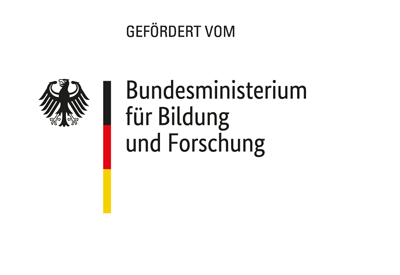Transparency and awareness in ubiquitous computer environments (UbiTrans)
Research field Sociology of Technology | Prof. Dr. Johannes Weyer | Fabian Adelt | Sebastian Hoffmann
The UbiTrans project aims to support citizens in dealing with web-based content and to enable them to make self-determined, effective and informed decisions regarding privacy and the information they consume. The research area Sociology of Technology is working on the sub-project "User types and their practices of dealing with web-based content".

Federal Ministry of Education and Research (BMBF)
Today, citizens use the Internet to perform a variety of tasks. For example, they interact with their friends, read news, and share ideas with others. Because of these wide-ranging applications, web browsers have almost replaced traditional operating systems. Browsers process more and more personal and sensitive data (e.g. credit card numbers or health data). When visiting websites, various aspects are not always presented in a transparent or comprehensible way for users. These are, on the one hand, primary content of the website, e.g., articles that report in a very one-sided or even false way ("fake news") and, on the other hand, secondary content that, for example, records the activities of users ("tracking," "profiling"). The latter content may have a negative impact on users, but is nevertheless essential for the websites (e.g., for financing the services). For sustainable trust in these services, it is essential that users are made aware of the effects of their use of a service in a transparent and comprehensible way.
This is where the UbiTrans project comes in, in order to sensitize users to these current challenges and to show them what dangers result from such lack of transparency on the web. The project focuses on supporting users in recognizing deliberate misinformation and in the informed use of web services to protect their privacy.
- Aware7 GmbH, Gelsenkirchen
- If(is) - Institute for Internet Security, Westphalian University of Applied Sciences, Gelsenkirchen
- CISPA - Helmholtz Centre for Information Security, Saarbrücken
- Identification of different types of users and their practices in dealing with IT systems and web-based content.
- Development of awareness measures and training offers ("awareness training")
- Development of intuitive digital tools to support Internet users (browser enhancement).
The Sociology of Technology research area is responsible for identifying potential user types and target groups, as well as for determining user needs and evaluating the measures to be developed (training courses and browser expansion). Both qualitative (interviews, participant observation, thinking aloud) and quantitative methods (large-scale, standardized surveys) of empirical social research are used.




![[Translate to English:] [Translate to English:]](/storages/zentraler_bilderpool/_processed_/a/f/csm_Kontakt_b86e8d8ecc.png)
![[Translate to English:] [Translate to English:]](/storages/sfs-sowi/_processed_/6/c/csm_Glasfront_sfs_Header_eae6d325d3.jpg)